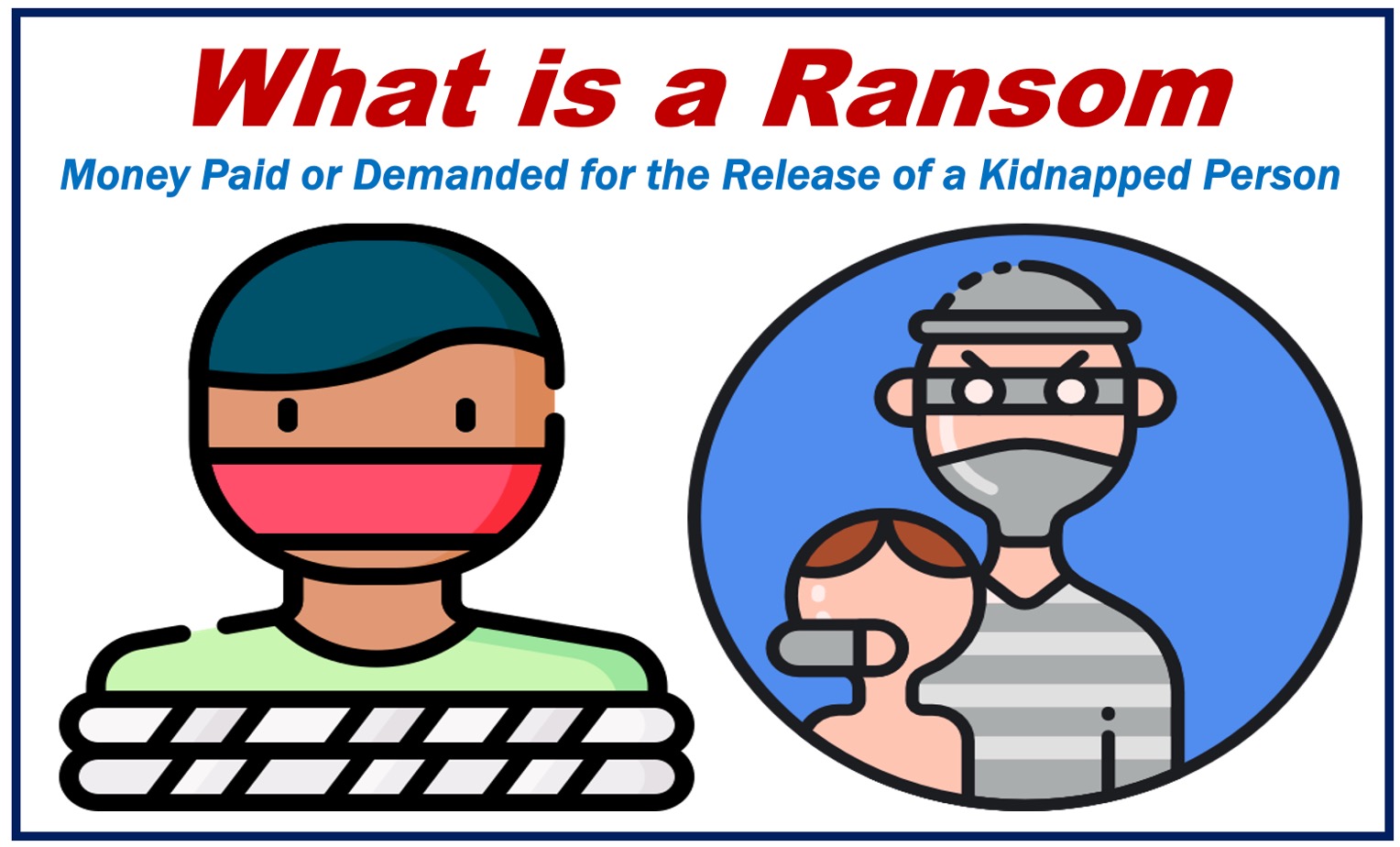A ransom is a sum of money or other valuables demanded for the release of a captive. This practice, with origins in historical and criminal scenarios, represents a risky exchange where lives and property are on the line.
Historical Roots
The concept of a ransom has existed for thousands of years, stretching back to ancient times. Kings, nobles, and soldiers who were captured in battle were sometimes held for ransom.
This generated revenue and helped negotiate peace during conflicts. The trade involved a plain transaction: a prisoner’s release in exchange for a certain amount of money or something valuable.
Modern-day scenarios
- Kidnappings
Regrettably, the scourge of kidnappings persists in contemporary society. In certain regions across the globe, these heinous acts are not just sporadic incidents but a disturbingly frequent reality.
Malefactors, ranging from organized criminals to terrorist factions, abduct individuals, thrusting victims and their families into a harrowing ordeal of risk, uncertainty, and desperation. These perpetrators demand hefty ransoms for the safe return of the abducted, turning human lives into leverage for their nefarious objectives.

- Ransomware attacks
Ransomware attacks represent a formidable and increasingly prevalent threat in the digital age. In these attacks, cybercriminals employ sophisticated malicious software to infiltrate computer systems, seizing control and encrypting sensitive data. This paralyzes the victim’s operations and leaves them unable to access crucial information or perform essential tasks.
The perpetrators then issue a ransom demand, typically insisting on payment in cryptocurrencies due to their untraceable nature. Only upon receipt of the ransom do these cybercriminals promise to provide the decryption key. Learn more about ransomware
- Extortion
Extortion is a criminal act that involves coercing an individual or entity into providing money, goods, services, or favors under the threat of harm. This harm may be directed at the victim themselves, their loved ones, their property, or their reputation. Unlike theft, where property is taken directly, extortion involves compelling the victim to hand over the valued item or service against their will, typically through the use of threats, intimidation, or manipulation.
Both extortion and ransom involve the exploitation of power and the victim’s vulnerability, often leaving lasting psychological scars and fostering a sense of helplessness and violation.
Laws and policies
- No-ransom policy
Laws and policies regarding kidnapping and extortion vary significantly by region, reflecting diverse legal frameworks and cultural attitudes. To deter these crimes and protect potential victims, certain jurisdictions and organizations advocate for a strict no-ransom policy.
They believe that refusing to accede to the demands of kidnappers or extortionists disrupts the profitability of these criminal activities and reduces their prevalence over time. This hardline approach is grounded in the philosophy that conceding to perpetrators’ demands only fuels further crimes.
- Imperative to preserve life
Conversely, some regions or entities adopt a more flexible stance, permitting negotiation with perpetrators in extreme circumstances to safeguard human lives. This approach is often governed by the immediate imperative to preserve life, even if it potentially involves complex ethical dilemmas and the risk of encouraging future crimes.
- Prevention
In addressing these threats, many areas also invest in preventive measures, including public awareness campaigns, enhanced security protocols, and rigorous enforcement of cybercrime legislation to combat ransomware attacks. Regardless of the specific strategy, the ultimate objective remains consistent: to protect individuals from the trauma of kidnapping and extortion while undermining the criminal enterprises that perpetrate these acts.
Aftermath of a Ransom
Paying a ransom whether it is a release of a kidnapped individual or regaining access to encrypted data, won’t always guarantee a good outcome. The payment of ransom creates a vicious cycle that empowers criminals and funds their future criminal acts.
Written by Nicolas Perez Diaz, October 15, 2023.
